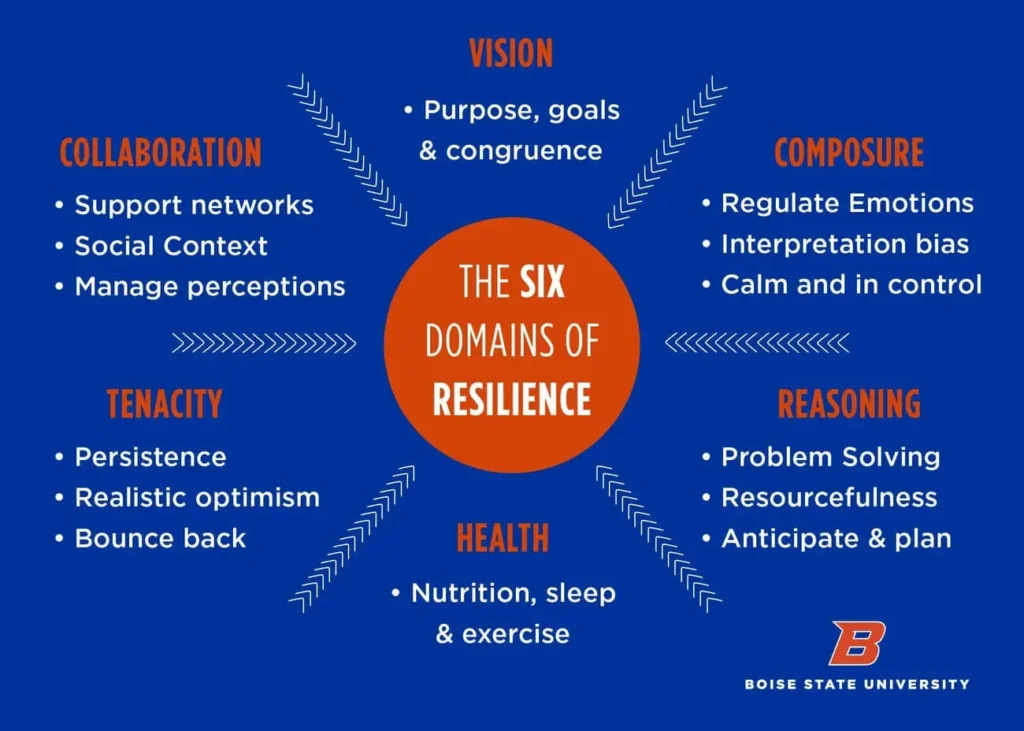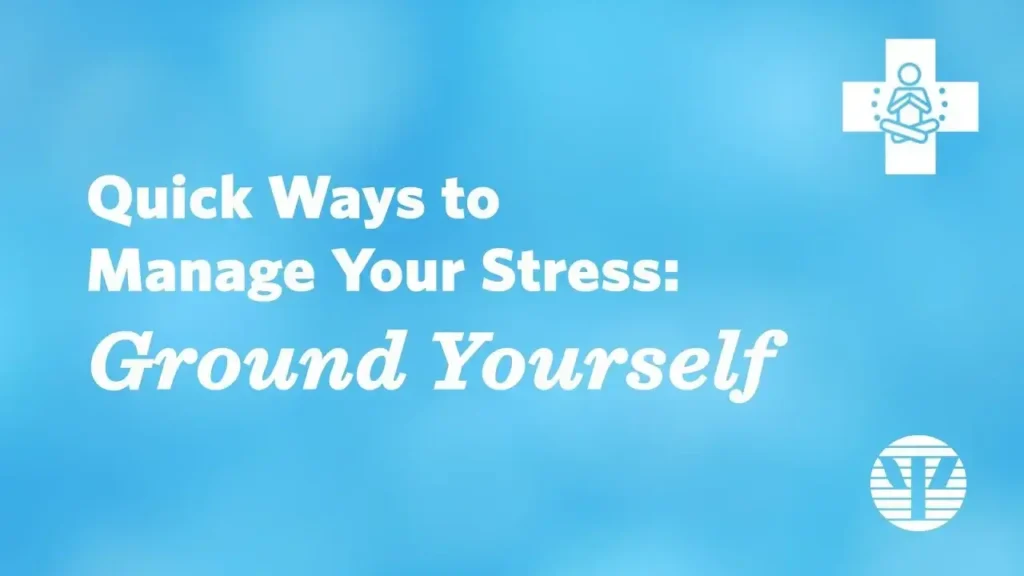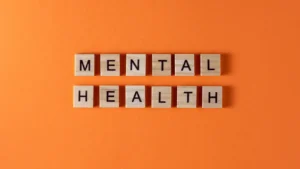Life throws curveballs at us when we least expect them. Work deadlines and personal challenges pile up, and the pressure feels overwhelming.
Resilience isn’t just another buzzword – it serves as our mental armor against life’s challenges. Resilience means knowing how to bounce back from setbacks and adapt to change. Some people seem naturally equipped with emotional resilience, and the good news is that we can all develop this skill.
My research and personal experience have shown that building resilience isn’t about becoming invincible. The focus lies on developing practical strategies that actually work. These six proven methods will strengthen your mental foundation and prepare you for whatever comes next, whether you face workplace stress or personal hurdles.
Mindfulness Meditation Practice
My work as a mental health researcher shows that mindfulness meditation is the life-blood of building mental resilience. Years of studying different techniques have led me to realize this ancient practice provides modern solutions to our daily challenges.
Benefits of Mindfulness for Mental Resilience
The science behind mindfulness speaks volumes. Research shows that 30 days of consistent meditation practice can increase mental resilience by 11%. This same period of mindfulness practice can reduce stress levels by one-third.
Mindfulness brings several key benefits that build emotional resilience:
- Less rumination and negative thought patterns
- Better emotional regulation and stress management
- Sharper concentration and mental clarity
- Greater self-awareness and cognitive flexibility
- Stronger immune system functioning
Daily Mindfulness Exercises for Resilience
My practice has helped me develop a simple approach to daily mindfulness that works for everyone. Consistency matters more than duration. Here’s a well-laid-out daily practice plan:
Time of Day | Practice | Duration |
|---|---|---|
Morning | Body scan meditation | 20 minutes |
Evening | Sitting meditation | 20 minutes |
Weekly | Stretch and breathe | 1-2 sessions |
Mindfulness-Based Stress Reduction Techniques
Mindfulness-Based Stress Reduction (MBSR) provides an effective way to build resilience. MBSR helps us focus on the present moment while letting go of past or future worries.
These core techniques work best:
Diaphragmatic Breathing: This technique, also known as belly breathing, lowers blood pressure and slows heart rate effectively.
Body Scan Meditation: This practice helps you develop deeper awareness and relaxation by focusing attention on different body parts systematically.
Mindful Movement: Gentle yoga or stretching coordinates breath with movement and boosts body awareness.
These techniques are powerful because they help us develop “responsive resilience” – shifting from reactive patterns to thoughtful responses. Research confirms that mindfulness meditation doesn’t just improve our stress response; it can affect our DNA at a molecular level, especially genes linked to depression.
Building resilience through mindfulness isn’t about perfect peace. It helps us develop a balanced relationship with our thoughts and emotions. Regular practice makes us less reactive to stress and more adaptable to life’s challenges.
Physical Exercise and Movement
My research in sports psychology has shown that physical exercise builds more than just stronger muscles – it creates an unshakeable mind. The link between physical movement and mental resilience is the sort of thing I love, and science backs this up.
How Exercise Affects Mental Resilience
The science behind how exercise affects resilience tells a compelling story. Studies show that young athletes who play sports regularly have much higher resilience levels than those who don’t participate. This relationship grows stronger as athletes compete at higher levels.
Exercise improves resilience through several paths:
- Releases endorphins and neurotransmitters that lift mood
- Improves brain functions like memory and learning
- Builds self-esteem and self-efficacy
- Creates a sense of community and belonging
Studies have found that exercise becomes twice as effective at building resilience during high-stress periods.
Best Exercises for Building Mental Strength
My experience and research show that different exercises build mental resilience in unique ways. Here’s a breakdown of effective activities:
Exercise Type | Mental Resilience Benefit |
|---|---|
Muscular Training | Increases self-efficacy and stress resilience |
Aerobic Exercise | Improves neuroplasticity and cognitive function |
Team Sports | Develops social support networks and emotional regulation |
High-Intensity Training | Builds stress tolerance and adaptation capacity |
Creating an Exercise Routine for Resilience
Building resilience through exercise depends more on consistency than the specific activities you choose. A sustainable routine needs a thoughtful approach.
Research shows that exercise boosts resilience at the biological level. It promotes neurotransmitter and endorphin release, creating a euphoric state that reduces negative thought patterns. This biological response helps build stronger mental resilience.
Muscular fitness and self-perceived fitness predict stress resilience well. Studies show that improvements in muscular fitness explain about 20% of resilience outcomes by boosting self-efficacy.
Start small and challenge yourself gradually. Individual needs vary for amount and intensity, but regular participation matters most. Note that resilience works like an emotional muscle – it gets stronger with consistent training.
Cognitive Reframing Techniques

My work as a cognitive behavioral specialist has shown me that our minds work like sophisticated computers – we can reprogram them to build greater resilience. Cognitive reframing has changed my approach to life’s challenges. This powerful technique builds emotional resilience.
Understanding Cognitive Reframing
Cognitive reframing goes beyond positive thinking. The process restructures our interpretation of situations. My research shows this therapeutic process helps us find, challenge, and modify negative thought patterns. The technique’s ability to reduce stress by creating functional thought habits amazes me.
Cognitive reframing succeeds through a systematic process:
- Identification of negative thought patterns
- Getting into thought validity
- Generation of alternative viewpoints
- Implementation of new thinking patterns
Practical Reframing Exercises
My practice uses a well-laid-out approach to reframing thoughts. The “Catch it, Check it, Change it” technique works especially when you have consistent practice. Here’s how my clients analyze their thoughts:
| Thought Stage | Action Required | Purpose |
|---|---|---|
| Catch It | Identify negative thoughts | Awareness building |
| Check It | Examine evidence | Reality testing |
| Change It | Create alternative viewpoint | Thought transformation |
Implementing Reframing in Daily Life
Cognitive reframing’s power lies in its ground application to everyday situations. Starting small and building up brings the best results. Research confirms that regular practice of these techniques reduces anxiety and improves mental well-being by a lot.
These practices need smooth integration into your daily routine. My clients start with simple situations before tackling bigger challenges. To name just one example, they handle work challenges this way:
Identify the trigger: Notice what sparked the negative thought
Examine the evidence: Look for facts that support or contradict the thought
Generate alternatives: Create at least three different ways to view the situation
Choose a balanced perspective: Select the most realistic and helpful viewpoint
Over the last several years, I’ve seen cognitive reframing become natural with practice, much like building physical resilience through exercise. The goal isn’t eliminating negative thoughts. Instead, we develop balanced and resilient thinking patterns.
Social Connection Building

My research in social psychology has shown that our relationships are vital pillars of emotional resilience. Studies indicate that social support is as significant for life expectancy as avoiding obesity or quitting smoking.
Importance of Support Networks
The quality of our social connections matters more than quantity when building resilience. Research shows that social support can boost resilience to stress and protect against trauma-related disorders. Strong social ties can actually modify our genetic expression, and this could reduce our risk of mental illness even in stressful environments.
Here’s how different types of social support contribute to resilience:| Support Type | Resilience Benefit |
|---|---|
| Emotional | Provides love and empathy |
| Instrumental | Offers practical assistance |
| Informational | Supplies advice and guidance |
| Appraisal | Helps with self-evaluation |
Building Meaningful Relationships
My experience counseling individuals on building resilience shows that creating strong social connections needs intentional effort. Research demonstrates that social bonds provide up to 95% determination of success or failure in life.
These key aspects need focus:
Active listening and genuine interest
Regular check-ins with loved ones
Shared activities and experiences
Reciprocal support and encouragement
Maintaining Healthy Boundaries
Resilience strengthens with healthy boundaries. Studies show that clear boundaries help retain personal identity while encouraging mutual respect. Setting boundaries isn’t about building walls – it creates healthy spaces where relationships flourish.
Science clearly shows that loneliness and social isolation lead to serious health issues, including increased blood pressure, diminished immunity, and cognitive decline. This makes nurturing our social connections while respecting personal limits essential.
My years of practice reveal how social support buffers against stress through multiple biological pathways. Good social support inhibits the body’s stress response system and reduces cortisol levels. This biological effect explains why people with strong support networks show greater resilience when facing life’s challenges.
Note that building meaningful connections isn’t about collecting friends. It’s about cultivating relationships that boost our emotional resilience and contribute to overall well-being. Studies confirm that high-quality social support reduces functional consequences of trauma-induced disorders and decreases medical morbidity.
Stress Management Strategies

My years of studying stress responses have taught me that managing stress is like conducting an orchestra – you need to understand every instrument in your emotional ensemble. The art of building resilience through stress management combines self-awareness with practical strategies.
Identifying Stress Triggers
Building emotional resilience depends on knowing your personal stress triggers. Our body sends clear signals when stressed, including increased heart rate, shallow breathing, and muscle tension. A stress journal can revolutionize your approach. It helps you spot patterns and develop proactive management strategies.
Here’s how different triggers affect our stress response:| Trigger Type | Physical Response | Mental Response |
|---|---|---|
| Work-related | Muscle tension | Racing thoughts |
| Relationship | Heart rate increase | Emotional overwhelm |
| Financial | Digestive issues | Anxiety patterns |
| Health-related | Sleep disruption | Worry cycles |
Effective Stress Relief Methods
My research has revealed several evidence-based methods to relieve stress. Physical activity can act as an immediate stress reliever by boosting feel-good endorphins. The sort of thing I love is how different techniques work through various pathways to build resilience.
These stress relief strategies work best:
- Mindfulness-based stress reduction
- Regular physical exercise
- Social connection building
- Creative expression
- Nature engagement
Creating a Stress Management Plan
A structured approach makes stress management work better. Research shows that identifying and managing both acute and chronic stress builds resilience. Your stress management plan should include immediate relief strategies and long-term resilience building.
The quickest way I’ve found involves the “FIRES” method (Focus, Identify, Respond, Review, Support). This system helps create individual-specific stress management strategies that build lasting resilience.
Stress management goes beyond just reducing stress – it reshapes our relationship with it. Studies show that reframing our understanding of stress responses improves performance and reduces anxiety. My practice has shown how this new point of view can improve emotional resilience by a lot.
Note that your stress management plan should be as unique as your fingerprint. Research shows that managing internal stressors includes reframing thoughts and choosing a positive mindset. External stressors need lifestyle changes like proper nutrition and adequate sleep.
Comparison Table
Method | Key Benefits | Implementation Approach | Scientific Evidence | Recommended Duration/Frequency |
|---|---|---|---|---|
Mindfulness Meditation | – Less rumination | – Body scan meditation | – 30 days practice increases resilience by 11% | 20 minutes morning and evening sessions |
Physical Exercise | – Releases endorphins | – Muscle training | – 20% variance in resilience from muscle fitness | Not specifically mentioned |
Cognitive Reframing | – Lowers stress | – Catch it, Check it, Change it method | Reduces anxiety and boosts overall mental health | Daily practice recommended |
Social Connection | – Better stress resilience | – Active listening | – 95% determination of success/failure in life | Regular ongoing participation |
Stress Management | – Less physical tension | – Stress journal keeping | Boosts endorphins and reduces anxiety | Not specifically mentioned |
Self-Care and Recovery | – Steady energy levels | – Physical health routines | 13 minutes daily meditation shows major benefits | 7-9 hours nightly sleep recommended |
Conclusion
Mental resilience isn’t limited to a chosen few – anyone can develop it through regular practice. My research shows that six specific methods create a solid foundation for emotional strength and adaptability.
These approaches each bring something special to the table. Mindfulness keeps us in the present moment. Exercise builds both physical and mental strength. Cognitive reframing shifts our thought patterns. Social bonds are vital support systems. Stress management gives us practical tools, and self-care ensures lasting resilience.
Research validates these methods’ effectiveness. Studies show that just 30 days of mindfulness practice can boost resilience by 11%, while strong social connections determine up to 95% of our success in life. Physical exercise alone can explain 20% of improvements in resilience outcomes.
Building resilience goes beyond avoiding stress or challenges. It’s about developing mental strength to tackle difficulties and emerge stronger. Small steps and consistent practice will help you build these habits into your daily life.
Your journey toward mental resilience might seem daunting at first. The benefits of enhanced emotional strength, better stress management, and improved wellbeing make it worth the effort. Start with one or two methods that appeal to you and add more as you develop your resilience toolkit.
Frequently Asked Questions
Emotional resilience is crucial because it helps you navigate life’s challenges more effectively. Without resilience, you may struggle to overcome problems, feel victimized, or resort to unhealthy coping mechanisms like substance abuse or risky behaviors. Resilience enables you to bounce back from setbacks, maintain a positive outlook, and adapt to change more easily.
To become more resilient, you can practice several strategies:
Accept challenging situations and focus on what you can control
Reframe negative experiences in a more positive light
Build and maintain strong social connections
Engage in regular self-care activities
Participate in meaningful activities that align with your values
Make necessary adjustments in your work and home life
Limit exposure to negative news and media
Building strong emotional resilience involves:
Developing self-acceptance and self-esteem
Improving stress management techniques
Practicing mindfulness and staying focused on the present
Learning to express emotions in healthy ways
Choosing constructive reactions to stressful situations
Cultivating self-awareness
Maintaining a balanced lifestyle with a mix of routine, necessary, and enjoyable activities
There are several key ways to develop emotional resilience:
Nurture relationships with loved ones and accept their support
Communicate openly about difficulties
Maintain a balanced lifestyle with a mix of routine, necessary, and pleasurable activities
Cultivate self-awareness
Practice stress management techniques like mindfulness meditation or physical exercise
Engage in cognitive reframing to challenge negative thought patterns
Develop and maintain a strong support network
Remember, building resilience is a personal journey, and what works best may vary from person to person. It’s important to experiment with different techniques and find the combination that works best for you.







